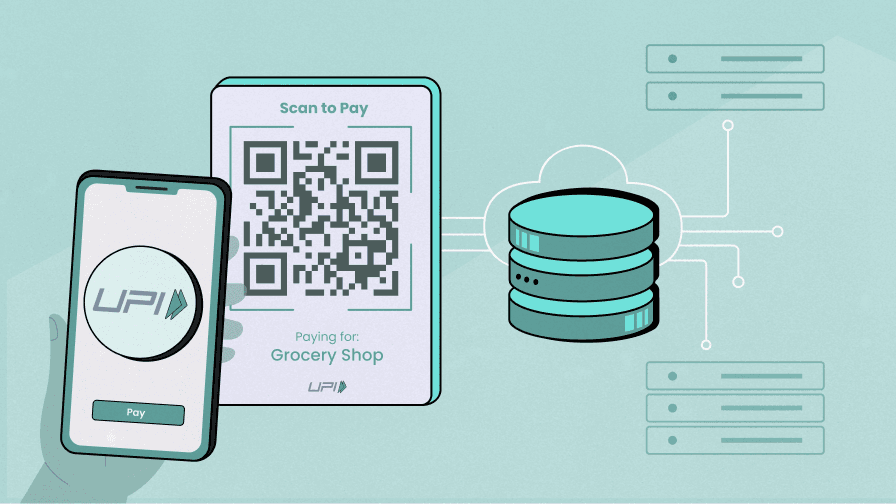The Unified Payments Interface (UPI) has revolutionised the way we conduct financial transactions, offering a seamless and convenient way to transfer money. However, like any digital system, UPI payments are not immune to occasional glitches, leading to UPI payment failures. Understanding the causes behind these failures and knowing how to address them is crucial for both users and UPI Payment Service Providers (PSPs).
UPI Payment Failures Trend
UPI payment failures can occur for various reasons, ranging from technical issues to user errors. One common cause is network connectivity problems. In the instance of a slow internet connection or insufficient network coverage, users may encounter issues with payments. Additionally, server downtimes on either the user’s bank or the PSP’s end can contribute to payment failures.
Another significant factor contributing to UPI payment failures is incorrect credentials or incomplete information provided during the transaction. Users must ensure that they enter the correct UPI PIN, beneficiary details, and transaction amount to avoid unnecessary payment hiccups. Fraudulent activities and security concerns are also key players in the UPI payment failure landscape. Banks and PSPs employ stringent security measures to protect users from unauthorised transactions. While these measures are essential, they can sometimes result in legitimate transactions being flagged, leading to payment failures.
To address these issues effectively, users must stay vigilant and double-check their transaction details. In case of a UPI payment failure, it is crucial to act promptly and follow the necessary procedures.
UPI PSP for Better Payment Success Rates
To enhance the success rates of UPI payments and provide a smoother experience for users, choosing a reliable UPI Payment Service Provider (PSP) is paramount. UPI PSPs play a vital role in facilitating transactions between users and their banks, ensuring the seamless flow of funds. Here are some key considerations for users and UPI PSPs to improve payment success rates:
- Technical Infrastructure: UPI PSPs must invest in robust technical infrastructure to minimise downtime and ensure a stable platform for transactions. Regular maintenance and updates are essential to address potential vulnerabilities and improve overall system performance.
- User Education: UPI PSPs should prioritise user education to reduce payment failures caused by user errors. Providing clear instructions on transaction processes, UPI PIN management, and common pitfalls can empower users to navigate the system more effectively.
- Customer Support: A responsive and efficient customer support system is crucial for both users and UPI PSPs. Users encountering UPI payment failures should be able to reach out to customer support easily. Similarly, UPI PSPs must have a streamlined process for addressing user complaints and resolving issues promptly.
- Security Measures: While robust security measures are essential, UPI PSPs should continuously evaluate and optimise their security protocols to minimise false positives. This will help prevent legitimate transactions from being flagged as fraudulent, reducing the incidence of payment failures.
UPI Payment Failure Complaints: A User’s Guide
When users encounter UPI payment failures, it is essential to know the appropriate steps to address the issue. Here is a step-by-step guide on how users can file UPI payment failure complaints:
- Contact Customer Support: Users should first reach out to the customer support provided by their bank or UPI PSP through email, phone or in-app chat. Give information about the unsuccessful transaction, such as the transaction ID, date, and sum.
- Check for Reversal: In some cases, UPI payment failures result in automatic reversals, where the amount deducted is returned to the user’s account. To determine whether the reversal has happened or not, users have to check their transaction history.
- File a Formal Complaint: If the issue persists, users can file a formal complaint with their bank or UPI PSP. Most banks have a dedicated grievance redressal mechanism for such cases. Provide all relevant details and documentation to support your case.
- Contact Banking Ombudsman: If the complaint remains unresolved, users have the option to approach the Banking Ombudsman. This is an independent authority appointed by the Reserve Bank of India to address grievances related to banking services.
UPI PSP
Unified Payments Interface Payment Service Provider, which is the UPI PSP full form, refers to entities that facilitate UPI transactions, acting as intermediaries between users and their respective banks. UPI PSPs play a pivotal role in ensuring the seamless and secure transfer of funds through the UPI platform. These service providers contribute to the efficiency of digital payments by maintaining robust technical infrastructure, implementing stringent security measures, and offering user-friendly interfaces. Understanding the significance of UPI PSPs and their role in the payment ecosystem is crucial for users seeking reliable and efficient digital transaction experiences. UPI PSPs act as intermediaries between users and their banks, facilitating UPI transactions.
Conclusion
While UPI has undoubtedly transformed the digital payments landscape, occasional UPI payment failures are inevitable. Users must stay informed about the common causes of failures and take proactive measures to avoid them. Choosing a reliable UPI PSP with a strong technical infrastructure, robust security measures, and effective customer support can significantly enhance the success rates of UPI payments. Additionally, understanding the complaint resolution process and staying vigilant against fraud can contribute to a more secure and seamless UPI experience for users. As the digital payment ecosystem continues to evolve, collaboration between users and UPI PSPs is crucial to addressing challenges and ensuring the continued success of UPI transactions.
